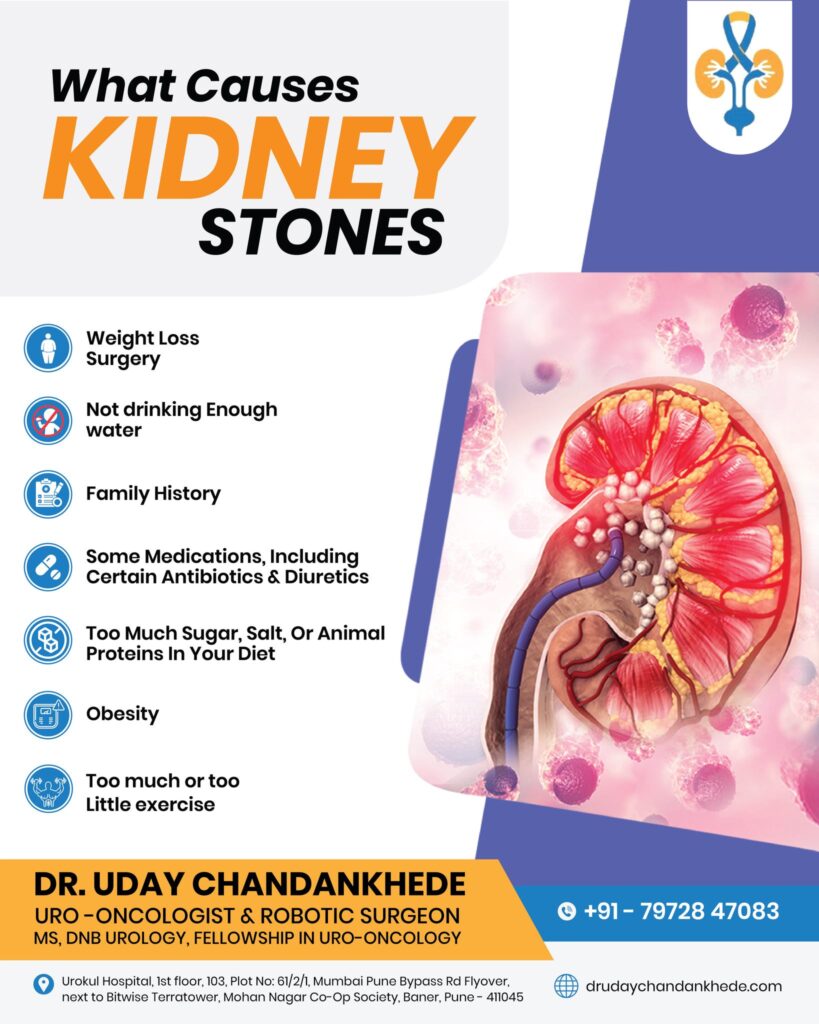Kidney stones are a common and often painful condition that affects people of all ages. These small, hard deposits form inside the kidneys and can cause severe discomfort when they pass through the urinary tract. Understanding the causes of kidney stones is the first step toward prevention and effective treatment.
What Are Kidney Stones?
Kidney stones are hard mineral and salt deposits that form inside your kidneys. They vary in size, from tiny grains to larger stones that can block the flow of urine, leading to intense pain and possible complications.
Common Causes of Kidney Stones
1. Dehydration
Not drinking enough water is one of the leading causes of kidney stones. When your body lacks sufficient fluids, urine becomes concentrated, allowing minerals and salts to stick together and form stones.
2. Excess Salt Intake
A diet high in salt increases the amount of calcium in the urine, which can contribute to stone formation. Processed foods, snacks, and fast food are common sources of excess salt.
3. High Oxalate Foods
Consuming large amounts of foods rich in oxalates, such as spinach, nuts, tea, and chocolate, can raise the risk of certain types of kidney stones, especially in people prone to them.
4. Family History
If kidney stones run in your family, you are more likely to develop them. Genetics can influence the way your body processes minerals and salts.
5. Obesity
Being overweight or obese can alter the acid levels in urine, increasing the risk of stone formation.
6. Digestive Disorders
Conditions like inflammatory bowel disease or chronic diarrhea can affect calcium and water absorption, raising the risk of stones.
7. Certain Medical Conditions
Health issues like urinary tract infections, hyperparathyroidism, and some kidney disorders can increase the likelihood of kidney stones.
8. Certain Medications & Supplements
Overuse of vitamin D, calcium supplements, diuretics, and some medications can also increase the risk of kidney stones.
How to Reduce the Risk?
-
Drink plenty of water daily
-
Maintain a balanced diet low in salt and oxalates
-
Maintain a healthy body weight
-
Avoid excessive intake of vitamin and mineral supplements without medical advice
-
Regular health check-ups to monitor kidney health
Conclusion
Kidney stones can be painful, but they are often preventable with proper hydration, a healthy diet, and regular medical care. If you’re experiencing symptoms like severe back pain, blood in urine, or difficulty urinating, consult a specialist without delay.
Dr. Uday Chandankhede offers advanced diagnosis and treatment options for kidney stones, helping you manage the condition effectively and prevent recurrence.

